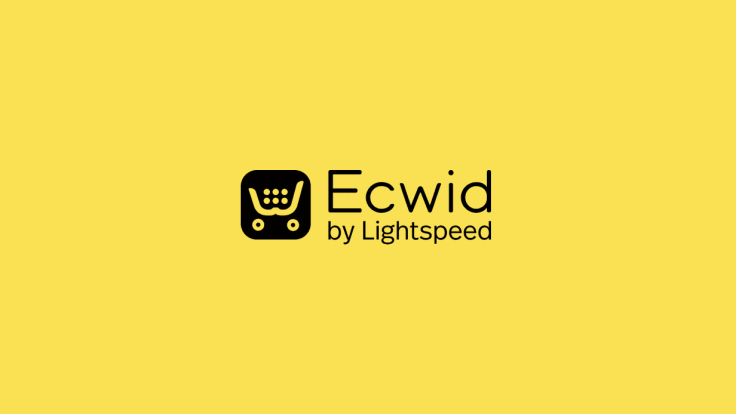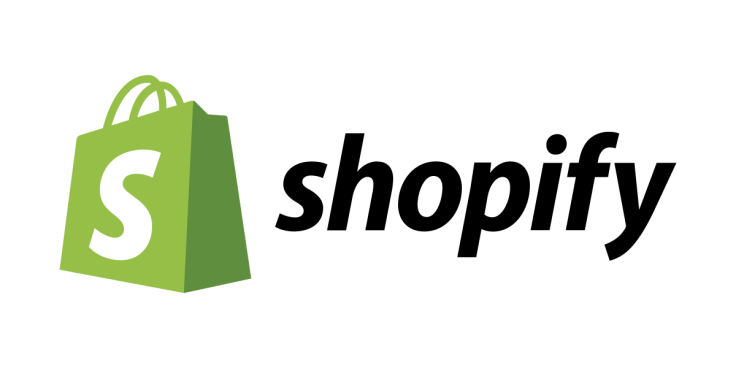
Are you considering setting up an online store and looking for the best eCommerce platform to suit your needs? While Shopify is undoubtedly a popular choice, it's important to explore alternatives that may offer unique features, competitive pricing, and a better fit for your business.
Here, we'll look at the top 5 best Shopify alternatives, competitors, and pricing in 2024 according to U.S. plans. This comprehensive guide offers insights to help you make an informed decision, whether you're a small business owner or an aspiring entrepreneur.
5 Best Shopify Alternatives in 2024
Now, let's take a deeper look at each of these options, including key factors that will help you make an informed decision on the best Shopify alternatives that you would finally put your money on. Read on below.
1. Ecwid.com

Ecwid is a SaaS-driven eCommerce platform designed to empower online entrepreneurs to establish their e-commerce store without coding. The platform's store plug-in seamlessly integrates with any pre-existing website, marketplace, blog, social network, and more. This user-friendly approach ensures a swift setup, allowing your business to be operational within minutes.
Furthermore, with Ecwid, you can effortlessly expand your reach globally, catering to customers on diverse online platforms. Centralize your business operations by efficiently handling inventory, orders, and pricing on one convenient platform. This streamlined solution revolutionizes the selling process, making it easier and accessible.
Key features of Ecwid include:
1. Easy integration with existing websites and social media platforms
2. Multiple sales channels, including Facebook, Instagram, and Amazon
3. Mobile-responsive design
4. Inventory management tools
5. Automated tax calculations
6. Automated email marketing
Pros of Ecwid
Ecwid excels in its ability to seamlessly integrate into existing websites, making it an ideal choice for businesses looking to expand their online presence. Its multichannel selling capabilities provide convenience and access to a broader customer base. Moreover, the platform offers a free plan, making it an attractive option for startups and small businesses.
Cons of Ecwid
While Ecwid offers a wide range of features, some users may find the customization options limited compared to other platforms. Additionally, certain advanced features require higher-priced plans, which may not be within the budget of all businesses.
Pricing
Free: $0 per month
Venture Plan: $29 per month
Business Plan: $49 per month
Unlimited Plan: $99 per month
2. Sellfy.com

Sellfy is an e-commerce platform that makes selling online easy. Whether you're selling digital products, subscriptions, print-on-demand products, or other physical products, Sellfy could be the solution you're looking for. However, creating a blog is more difficult than expected, and the interface and editor are harder to learn than similar services.
Notable features of Sellfy include:
1. Customization
2. Social media integration
3. Email Marketing
4. Integrated payment gateways
5. Optimized for mobile devices
6. Discount codes
Pros of Sellfy
Sellfy stands out for its clean and modern templates, allowing businesses to create visually appealing online stores. Its affordable pricing plans make it an attractive option for budget-conscious entrepreneurs. Moreover, it offers a free trial for each of its plans.
Cons of Sellfy
While Sellfy offers simplicity and affordability, it may lack some advanced features and customization options provided by other platforms. Additionally, customer support may not be as extensive as that of larger e-commerce platforms.
Pricing
Starter Plan: $19 per month
Business Plan: $49 per month
Premium Plan: $99 per month
3. Podia.com

Podia is a versatile e-commerce platform that offers a wide range of features for creators and educators. The platform allows you to sell online courses, digital downloads, memberships, and more. What sets Podia apart is its inclusive nature, incorporating both the checkout cart and email marketing tools. The integration negates the need to connect various disparate tools, offering a streamlined and efficient solution for your sales page endeavors.
Key Features of Podia:
1. User-friendly interface for course creation and management
2. Secure payment processing with no transaction fees
3. Membership site functionality for recurring revenue
4. Email marketing campaigns
5. Engagement analytics
Pros of Podia
Podia's focus on creators and course providers means the platform is built with their needs in mind. The user-friendly interface allows for easy course creation and management, while the absence of transaction fees ensures that you keep more of your revenue. Additionally, it offers excellent customer support, with live chat available at all times.
Cons of Podia
While Podia is great for creators and course providers, it may not be the best fit for businesses looking for a more extensive e-commerce solution. The platform's features are primarily geared towards digital products and memberships, so if you have a large inventory of physical products, you may need to explore other options.
Pricing
Free plan: $0 per month
Mover Plan: $33/month (billed annually)
Shaker Plan: $75/month (billed annually)
4. Squarespace.com

Squarespace is known for its visually appealing templates and intuitive website builder. While Squarespace is primarily recognized as a website builder, it also offers eCommerce functionality for online stores. The platform provides elegant designs and seamless integration with various payment gateways. Its key features include:
Key Features of Squarespace
1. Visually stunning and responsive templates
2. Drag-and-drop website builder and a 14-day free trial
3. Seamless integration with various payment gateways
4. Inventory management tools
5. SEO optimization features
6. Blogging capabilities
Pros of Squarespace
Squarespace excels at providing visually appealing templates that make it easy to create a beautiful online store. The drag-and-drop website builder allows easy customization, and the platform's SEO optimization features help improve your store's visibility in search engines. Squarespace.com also provides excellent customer support through live chat and email.
Cons of Squarespace
While Squarespace.com offers solid e-commerce features, it may lack some advanced functionalities that more dedicated platforms provide. Additionally, the platform's pricing can become expensive if you require additional features or your store grows significantly.
Pricing
Personal: $16/month
Business Plan: $23/month
Basic Commerce Plan: 27/month
Advanced Commerce Plan: $49/month
5. Squareup.com

Squareup, one of the best Shopify alternatives and an expansive e-commerce powerhouse, provides an exhaustive suite of features tailored for online and brick-and-mortar enterprises. Dive into its sophisticated inventory management system, which ensures seamless synchronization between virtual and physical stock. Beyond the checkout counter, Square's advanced Point of Sale (POS) solutions redefine transactional experiences, while its robust analytics tools empower businesses with granular insights for strategic decision-making.
Key Features of Squareup.
1. Integrated payment processing with competitive rates
2. Access to business tools and loans
3. Inventory management
4. Curated customer info
5. Marketing tools and promotions
6. Analytics and Reporting
Pros of Squareup
Squareup offers a seamless integration between your in-person and online sales channels, making it easy to manage your inventory and orders from one central platform. The integrated payment processing is competitive in rates and offers a secure and reliable solution for your eCommerce transactions.
Cons of Squareup
While Squareup provides solid eCommerce features, it is primarily focused on payment processing. If you require more advanced eCommerce functionalities, such as extensive customization options or multichannel selling capabilities, you may need to consider other alternatives.
Pricing:
Free: $0/month
Plus: $29/month
Premium: Custom pricing
What does Shopify offer?

Shopify is a popular e-commerce website builder that offers monthly plans designed to accommodate any budget. The all-in-one platform provides everything you need to launch an online store, even if you have no coding or design experience. Its plans come with unlimited storage and bandwidth and let you post unlimited products, which means Shopify scales beautifully as your business grows. Its key features include:
1. Easy-to-use website builder;
2. Seamless integration with various payment gateways;
3. Comprehensive inventory management tools;
4. Abandoned cart recovery;
5. Mobile commerce optimization;
6. Multichannel selling capabilities.
Pros of Shopify
Shopify offers an intuitive interface, making it easy for beginners to set up their online store. Its extensive app store provides access to a wide range of third-party integrations, allowing you to enhance your store's functionality. Moreover, it offers excellent customer support, ensuring you receive assistance as and when needed.
Cons of Shopify
While Shopify.com is a popular choice, it does have some drawbacks. Its transaction fees can add up, particularly if you opt for external payment gateways. Additionally, if you require customizations beyond the capabilities of their themes and apps, you may need to hire a developer.
Pricing
Custom pricing
Wrapping up
Choosing the best eCommerce platform for your business can be a crucial decision. While Shopify.com, Ecwid.com, and Sellify.com are all strong contenders, their unique features, pricing plans, and pros and cons vary.
By evaluating your needs and doing thorough research, you can make an informed decision and find the best Shopify alternatives that align perfectly with your business goals. After all, with the ever-evolving landscape of eCommerce, it's important to stay updated with the latest trends and innovations to stay competitive in 2024 and beyond.







